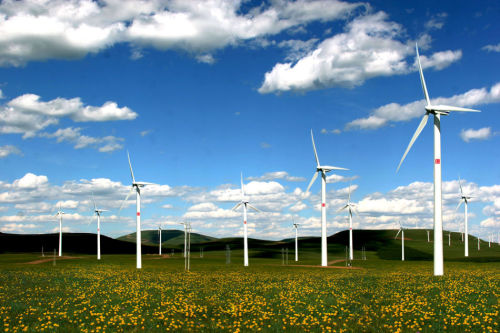Artificial Intelligence
The trend of Germany's abandoned wind is worrying
 Recently, the Federal Network Agency, Germany’s power grid regulator, released data showing a sharp increase in the amount of renewable energy that couldn’t be connected to the grid. Between 2010 and 2011, the volume of unused renewable energy tripled. In 2011 alone, Germany had to abandon 421 gigawatt-hours (GWh) of renewable energy, compared to just 127 GWh in 2010. This alarming trend has raised concerns among experts and policymakers alike.
According to the agency, the main reasons behind this issue are the uncontrolled expansion of renewable energy sources and the slow development of transmission infrastructure. For instance, wind power generation is heavily concentrated in northern Germany, while demand is higher in the south. However, due to insufficient grid capacity and delayed construction of high-voltage transmission lines, surplus wind energy from the north cannot be effectively transported to where it's needed. As a result, large amounts of clean energy are being wasted, leading to significant economic losses.
In Germany, renewable energy producers have priority access to the grid, meaning that even if the system is overloaded or unable to absorb the energy, grid operators are legally required to compensate them. According to the report, in 2011, grid companies paid out 33.5 million euros to renewable energy producers for unused power. While this sum may seem small compared to Germany’s overall investment in renewables—around 14 billion euros in 2012 (approximately 113.1 billion yuan)—the growing trend is still cause for concern.
The situation highlights the challenges of transitioning to a fully renewable energy system. Without sufficient infrastructure and proper planning, even the most advanced green energy policies can lead to inefficiencies and waste. Experts warn that unless the grid keeps pace with the rapid growth of renewables, similar issues will continue to arise, undermining the long-term sustainability of Germany’s energy transition. The real-time exchange rate used in this article is 1 Euro = 8.0755 Chinese Yuan.
Recently, the Federal Network Agency, Germany’s power grid regulator, released data showing a sharp increase in the amount of renewable energy that couldn’t be connected to the grid. Between 2010 and 2011, the volume of unused renewable energy tripled. In 2011 alone, Germany had to abandon 421 gigawatt-hours (GWh) of renewable energy, compared to just 127 GWh in 2010. This alarming trend has raised concerns among experts and policymakers alike.
According to the agency, the main reasons behind this issue are the uncontrolled expansion of renewable energy sources and the slow development of transmission infrastructure. For instance, wind power generation is heavily concentrated in northern Germany, while demand is higher in the south. However, due to insufficient grid capacity and delayed construction of high-voltage transmission lines, surplus wind energy from the north cannot be effectively transported to where it's needed. As a result, large amounts of clean energy are being wasted, leading to significant economic losses.
In Germany, renewable energy producers have priority access to the grid, meaning that even if the system is overloaded or unable to absorb the energy, grid operators are legally required to compensate them. According to the report, in 2011, grid companies paid out 33.5 million euros to renewable energy producers for unused power. While this sum may seem small compared to Germany’s overall investment in renewables—around 14 billion euros in 2012 (approximately 113.1 billion yuan)—the growing trend is still cause for concern.
The situation highlights the challenges of transitioning to a fully renewable energy system. Without sufficient infrastructure and proper planning, even the most advanced green energy policies can lead to inefficiencies and waste. Experts warn that unless the grid keeps pace with the rapid growth of renewables, similar issues will continue to arise, undermining the long-term sustainability of Germany’s energy transition. The real-time exchange rate used in this article is 1 Euro = 8.0755 Chinese Yuan.316 314 Flange bolt,Motorcycle non-slip bolt,Anti-slip bolts,Galvanized multipurpose Flange bolt
Hebei Quanfang Fastener Co., Ltd , https://www.quanfangfastener.com